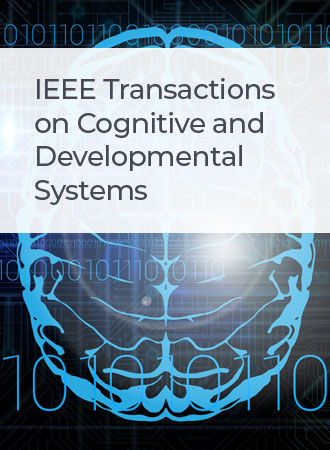BitSNNs: Revisiting Energy-Efficient Spiking Neural Networks
IF 5
3区 计算机科学
Q1 COMPUTER SCIENCE, ARTIFICIAL INTELLIGENCE
IEEE Transactions on Cognitive and Developmental Systems
Pub Date : 2024-04-01
DOI:10.1109/TCDS.2024.3383428
引用次数: 0
Abstract
To address the energy bottleneck in deep neural networks (DNNs), the research community has developed binary neural networks (BNNs) and spiking neural networks (SNNs) from different perspectives. To combine the advantages of both BNNs and SNNs for better energy efficiency, this article proposes BitSNNs, which leverage binary weights, single-step inference, and activation sparsity. During the development of BitSNNs, we observed performance degradation in deep ResNets due to the gradient approximation error. To mitigate this issue, we delve into the learning process and propose the utilization of a hardtanh function before activation binarization. Additionally, this article investigates the critical role of activation sparsity in BitSNNs for energy efficiency, a topic often overlooked in the existing literature. Our study reveals strategies to strike a balance between accuracy and energy consumption during the training/testing stage, potentially benefiting applications in edge computing. Notably, our proposed method achieves state-of-the-art performance while significantly reducing energy consumption.BitSNNs:重新审视高能效尖峰神经网络
为解决深度神经网络(DNN)的能量瓶颈问题,研究界从不同角度开发了二元神经网络(BNN)和尖峰神经网络(SNN)。为了结合 BNN 和 SNN 的优势以提高能效,本文提出了 BitSNN,它充分利用了二进制权重、单步推理和激活稀疏性。在开发 BitSNNs 的过程中,我们发现由于梯度逼近误差,深度 ResNets 的性能有所下降。为了缓解这一问题,我们深入研究了学习过程,并建议在激活二值化之前使用硬坦函数。此外,本文还研究了激活稀疏性在 BitSNNs 中提高能效的关键作用,这是现有文献中经常忽略的一个话题。我们的研究揭示了在训练/测试阶段如何在准确性和能耗之间取得平衡的策略,这对边缘计算中的应用大有裨益。值得注意的是,我们提出的方法在大幅降低能耗的同时,还实现了最先进的性能。
本文章由计算机程序翻译,如有差异,请以英文原文为准。
求助全文
约1分钟内获得全文
求助全文
来源期刊

IEEE Transactions on Cognitive and Developmental Systems
Computer Science-Software
CiteScore
7.20
自引率
10.00%
发文量
170
期刊介绍:
The IEEE Transactions on Cognitive and Developmental Systems (TCDS) focuses on advances in the study of development and cognition in natural (humans, animals) and artificial (robots, agents) systems. It welcomes contributions from multiple related disciplines including cognitive systems, cognitive robotics, developmental and epigenetic robotics, autonomous and evolutionary robotics, social structures, multi-agent and artificial life systems, computational neuroscience, and developmental psychology. Articles on theoretical, computational, application-oriented, and experimental studies as well as reviews in these areas are considered.
 求助内容:
求助内容: 应助结果提醒方式:
应助结果提醒方式:


